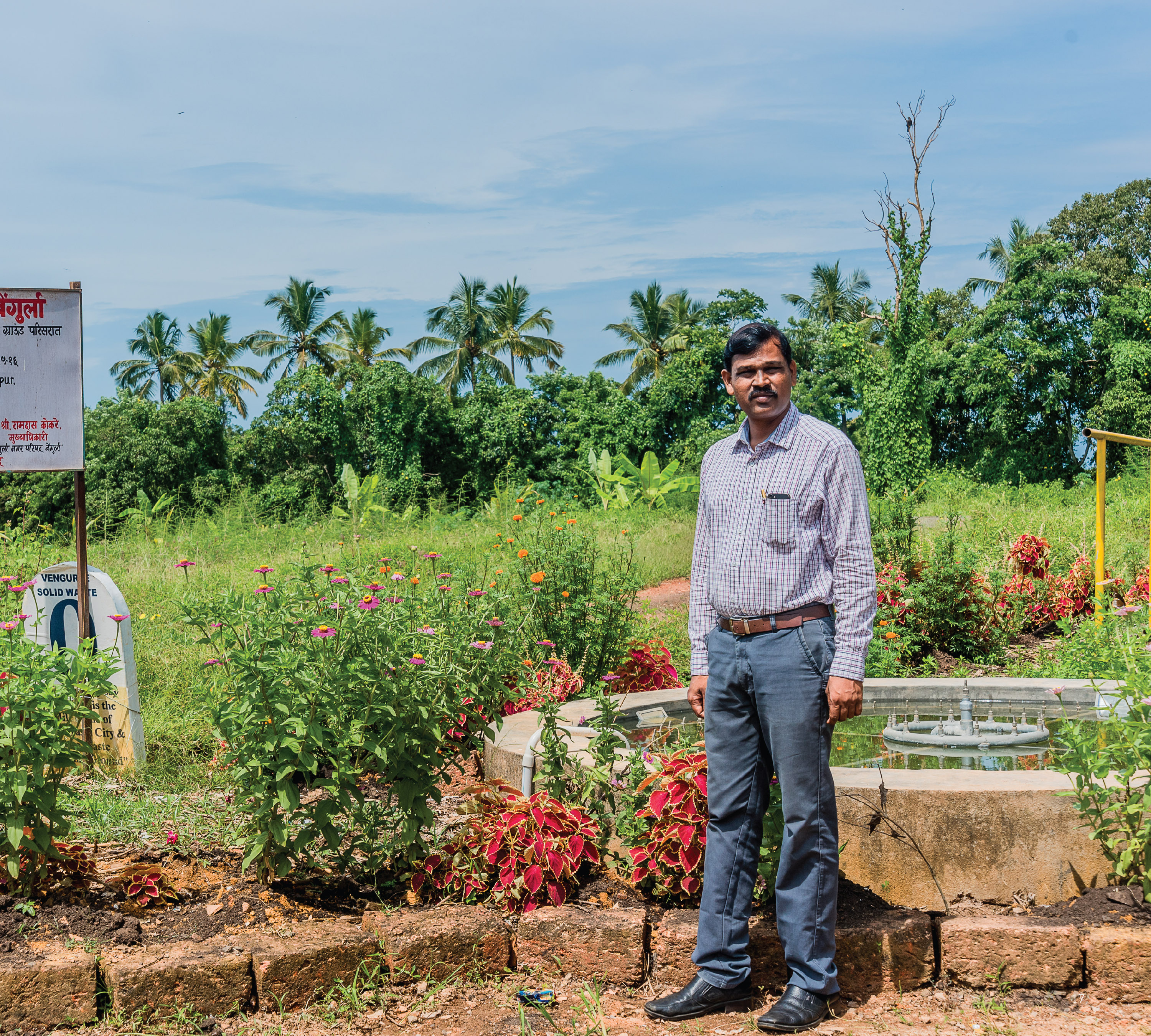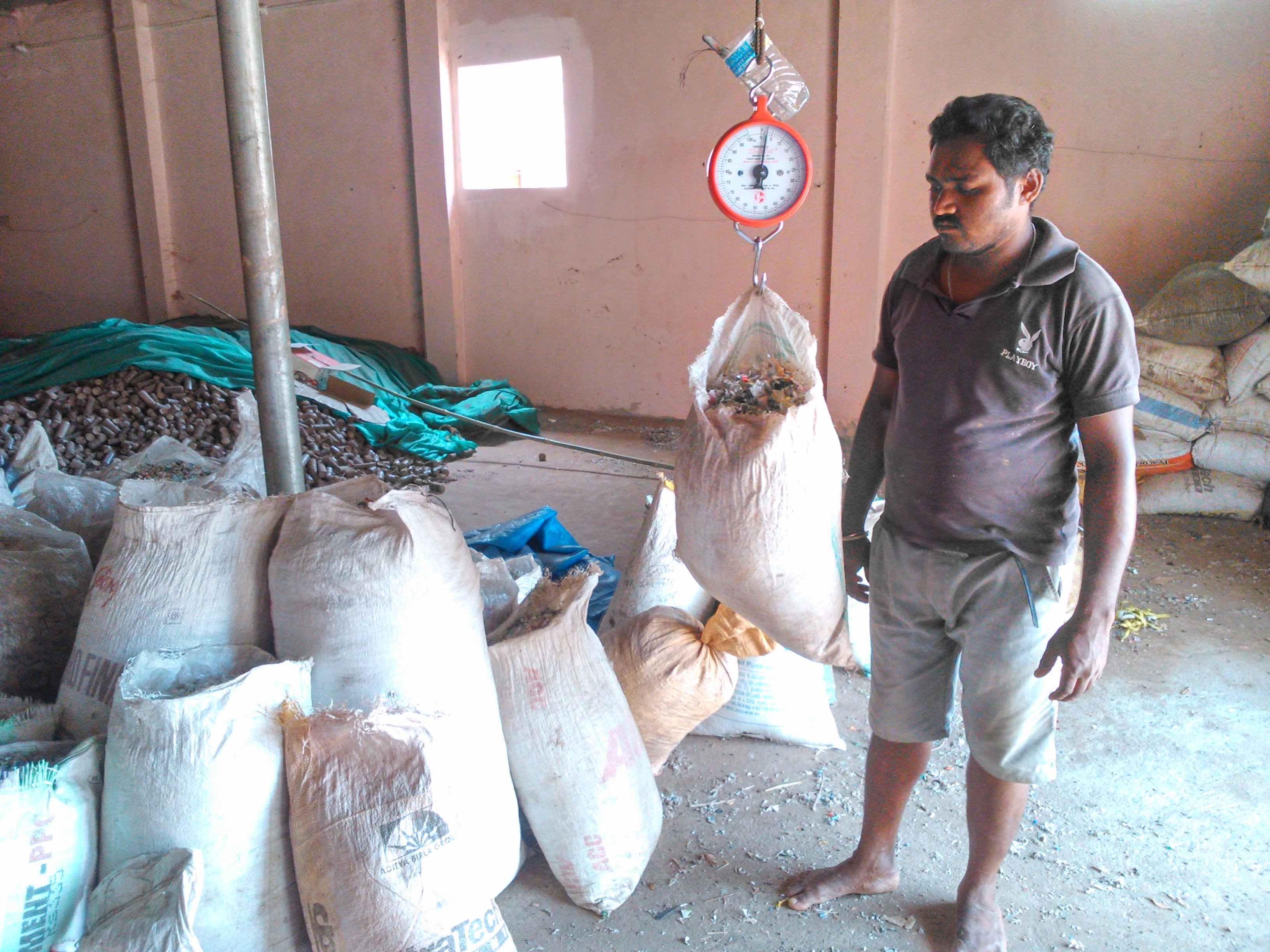Dumping Ground to Playground

Photo: UNDP India
Vengurla, a small town on the west coast of India, had big ambitions – to go completely free of waste. “Our vision was to transform this place from a dumping ground to a playground,” says Ramdas Kokare, chief officer of the Vengurla municipal council.
So, how did they get there? Kokare was instrumental in designing a four-step integrated solid waste management model that ensures that all forms of waste – wet and dry – are processed, leaving behind zero waste. The process involves:
· A four-way segregation of waste at source
· 100 percent door-to-door waste collection
· Processing of waste
· The utilization of processed waste for various purposes
A public outreach programme, in partnership with local NGOs, to stop open defecation and to encourage the communities to segregate waste at source in four separate dustbins – wet waste or kitchen waste; dry waste including paper, cardboard, tetra packs, rubber, cloth, leaf waste and dead wood; plastic waste including packaging material, PET bottles, plastic containers, milk packets and; metals and glass including glass bottles, aluminium, iron and tin. The dry and wet waste is processed with a ‘waste to energy’ approach, wherein kitchen waste is processed into biogas, and the dry waste is processed into briquettes, which are sold to factories to be used as fuel. “The only form of waste that we do not accept from people as of today are the carcasses of cattle or pet animals. We request them to bury the carcasses in their own backyards,” says the chief officer.
Vengurla has not just presented to the world an exemplary design of integrated solid waste management, it has also demonstrated an effective model of implementation. To ensure 100 percent adoption of this programme by the community, the Vengurla municipal council set up a supervision machinery of trained staff who ensure that only segregated waste is collected from the households.
Kokare can be seen on the streets early in the morning, supervising the collection vans and ensuring that mixed waste does not end up at the waste processing ground. The council also went a step further and passed a resolution that enabled legal action against households caught violating the guidelines of waste segregation. The biggest achievement of the model, however, has been the method of disposal of plastic waste, which is an issue of grave environmental concern.
Globally, the issue of plastic being washed into the seas has been discussed widely to formulate effective strategies to stop the pollution of our seas as well as to understand the impact it has on the ecosystem and our lives. It is estimated that more than eight million tonnes of plastic are washed into the oceans every year, potentially affecting more than 600 species worldwide. This issue was raised at the UN Environment Assembly held in Nairobi on 6 December 2017, and all 193 UN member countries signed a UN resolution to eliminate plastic pollution in the sea, and to do their bit towards monitoring and mitigation of this problem.

In Vengurla, the United Nations Development Programme, in partnernship with the Ministry of Environment and Forests and financed by the Global Environment Facility, provided financially support to the municipal council in procuring a plastic crusher machine that crushes up to 180 kg of light plastic every day. This was part of a larger initiative in the Sindhudurg coastal district’s production sectors, under way since 2011. The aim is to encourage adoption of green practices in these sectors, while generating awareness among local communities on biodiversity conservation.
Vengurla uses its plastic waste to build roads. After collection, segregation and crushing, the crushed plastic is mixed with bitumen and used for road construction. These roads are only sustainable – and considerably cheaper to build. A one kilometre stretch of road can use up to 1 tonne of plastic – the equivalent of 1 million carry bags -- and save INR 10,000 per stretch. Within two years of implementing its groundbreaking solid waste management model, the municipal council has constructed 12 kilometres of “plastic” roads, and earns INR 15 for every kg of plastic sold to contractors for road-building in nearby areas.
“The issue of waste management is often ignored. If we build roads and amphitheaters, it only benefits those who use it. But an effective solid waste management model in a town can benefit everyone,” says Kokare. It is this ideology which has won the solid waste management model several state and national awards for waste management, attracted policymakers and administrators, effectively transforming the dumping ground into a training centre for solid waste management.
“Two years ago, they were desperately trying to sell the land, wondering what to do with a piece of land near the dumping ground that reeks of decomposing kitchen waste and flies,” says Kokare, pointing to a house under construction on the opposite side of the dumping ground. “Some months ago, convinced with our success of turning this place into a zero-waste ground, they finally began construction,” he says, beaming. “I don’t think I’ll find a better indicator of the success of this project,” he concludes.

 Locations
Locations